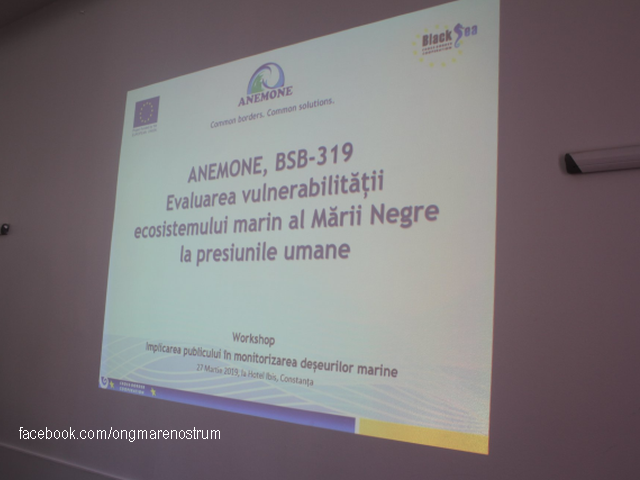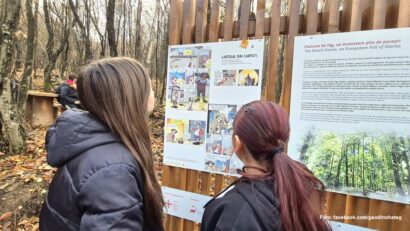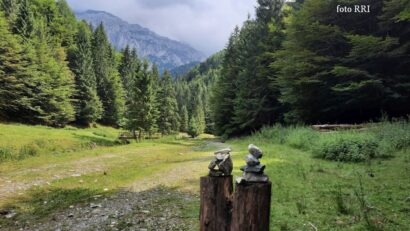Marine waste
Marine waste poses a severe threat to the marine environment the world over.

România Internațional, 29.03.2019, 12:27
Increasing amounts of plastic litter
are dumped into the waters, affecting the health of ecosystems. Studies show
that by 2050 the amount of litter will exceed that of fish, as tonnes of pieces
of plastic litter are floating in the oceans. Plastic accounts for 85% of marine
waste and genuine ‘islands of plastic’ are floating in the world’s seas. Many
sea species are mistakenly using micro-particles of plastic as their food and plastic
thus makes its way into the food humans consume. Environmentalists have already
pulled alarm signals calling on the authorities to come up with plans to reduce
the quantity of waste in the world’s seas.
Luis Popa, director general with the
Girgore Antipa Natural History Museum in Bucharest explains the impact of plastic
waste on the sea environment:
Plastic production began around
1960s and in the last 50 years we have reached an output of 300 million tonnes
of plastic at global level. Plastic is 90% made of oil. In fact, plastic
producers are using the same amount of oil as the entire aeronautic industry. Moreover,
plastic is a synthetic material, which isn’t biodegradable and this proves to
be a major downside when it comes to waste disposal. It can pollute the
environment for hundreds and thousands of years, and even longer in the ocean
environment. What is the impact of plastic disposal? First there is a direct
impact on wildlife but it may also have indirect consequences. For instance, if
plastic particles have made it to the beaches, they may lower the temperature
there and that may influence tortoises, which need a higher temperature to
hatch. Half of the plastic disposed in the seas is floatable but there is
another half that goes straight to the bottom of the ocean affecting the oxygen
exchange with a heavy impact upon the flora and the fauna there. A good deal of
these plastic particles become fish food.
Since 2009, the Mare Nostrum
Organisation in Constanta has been monitoring the beaches on the Black Sea
coast, gathering tonnes of waste. 2018 was considered the dirtiest year, with
the largest amount of waste registered on the Romanian Black Sea coast. Over
100,000 items of waste have been identified and eliminated since 2014. The city
of Constanta holds the negative record with 22,612. The towns of Costinesti and
Corbu have reported the lowest amounts of waste, with around four tonnes each.
Here is Marian Paiu, an environment expert with the Mare Nostrum NGO.
Unfortunately, last year we
reported the largest amount of waste. At the beginning of the year we thought we would have
an acceptably clean year, but it later turnout out as the dirtiest year, with
more than 38,000 items of waste reported in autumn alone. This is a very large quantity.
In 2015 we collected 2,019 items of waste in spring, in 2016 we had 3,885 waste
items, in 2017 waste went up to 18,000 items, while in 2018 we collected 24,000
items. This type of waste consists mainly of small items, besides items of
clothing and fragments of building materials. All this waste we collect and
then sent to be destroyed is found in the sand, on the beach. In recent years,
cigarette butts have been the most common type of waste found as part of our
monitoring activity. For example, in the Constanta sector known as Trei Papuci,
we found ted more than 6,000 cigarette butts, and this sector doesn’t have more
than 10,000 square meters in surface area.
The Mare Nostrum environmental
organisation is currently running a project aimed at improving public access to
monitoring data on marine waste with a view to reducing sea pollution in the
Black Sea basin. The project is also meant to promote stronger cross-border
integration of information, knowledge and expertise in the areas of environment
monitoring and marine waste in the Black Sea basin. Marian Paiu explains:
As part of this project, we have
been trying to centralise the existing data and to make them available for
researchers and institutions that could use them to improve their management,
but also for the general public, to make them aware of how serious the problem
is. We have already run a workshop to get a sense of the number of institutions
that collect data on the situation of marine waste and what kind of information
they have collected and to look at ways to reduce marine waste on the Romanian
sea coast. The conclusions of the workshop were very revealing as to where we stand at the moment, and I must say we’re not doing too well. Only a handful of institutions collect this kind of data. In
fact, no one seems to pay attention to how much waste is generated or collected
every year.
Four more workshops on marine waste
and its impact on the Black Sea ecosystem will be held at the beginning of May in
Romania, Turkey, Bulgaria and Ukraine, as part of the ANEMONE European project.






























